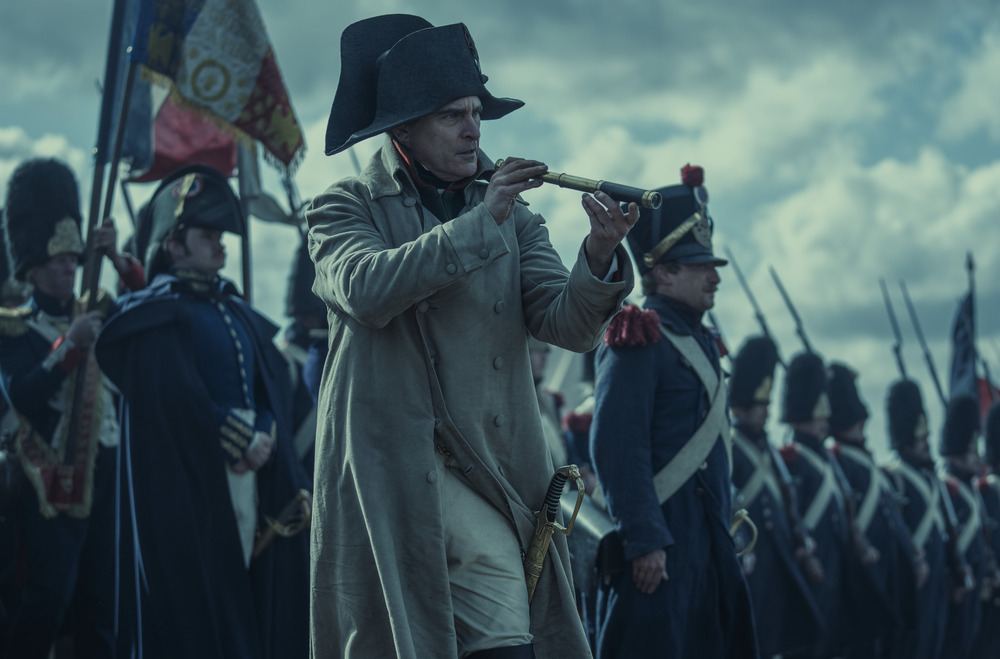Napoleon

Joaquin Phoenix stars in NAPOLEON. (Photo: Sony Pictures)
From the brutal beheading of Marie Antoinette during its opening credits, Napoleon proceeds to spill the blood and guts on one of the ugliest chapters of French history.
Of course, this ambitious biopic does so by chronicling the unsophisticated and unsympathetic titular emperor, who it openly mocks and derides in unison with most of his on-screen adversaries.
Thus, this visually dazzling period epic from director Ridley Scott creates a narrative conflict almost as contentious as the many battlefield clashes it depicts. Unlike its subject, the film survives its missteps.
The film follows the rise to power of Napoleon Bonaparte (Joaquin Phoenix) through the military and political ranks, starting in the late 18th century at the height of the French Revolution.
He marries outspoken aristocrat Josephine (Vanessa Kirby), crowns himself emperor amid turmoil, and launches a regime characterized by disputes with Austria, Russia, England, and others.
Josephine quickly asserts the upper hand behind the scenes in their turbulent relationship, knowing she can disintegrate his bravado. “You are nothing without me,” she scowls. “You are just a brute.”
Her bitter insults lead to their eventual divorce but embolden his thirst for power, as Napoleon is desperate to be taken seriously. Meanwhile, his proficiency as a war strategist is overshadowed by his aggressive warmongering in which he treats his own soldiers like pawns.
After sacrificing countless troops during an invasion of Russia, Napoleon’s bitter feud with war-weary England culminates in humiliating defeat at Waterloo in 1815, which finally forces him into exile.
The film invites obvious contemporary parallels — if you subtract the legacy of military service — in portraying an egotistical dictator who equates loyalty with victory and values personal glory above all else.
Emphasizing bombast and spectacle over subtlety and context, the film disregards consistency in language and accents but is more attuned to accuracy with sets, costumes, and historical events.
The battlefield sequences are vivid and intense, highlighted by the wintry 1805 conflict at Austerlitz and the climactic showdown at Waterloo.
However, the comedic rendering of a bumbling buffoon in the screenplay by David Scarpa (All the Money in the World) awkwardly meshes with the more serious-minded glimpse into such a critical era in European geopolitical history.
Napoleon tends to downplay the broader effects of his tyranny. Still, Phoenix’s deadpan brooding helps fuse the lighthearted tone with the thrilling scope. Contrasting his character, the film is in on the joke.
Rated R, 158 minutes.